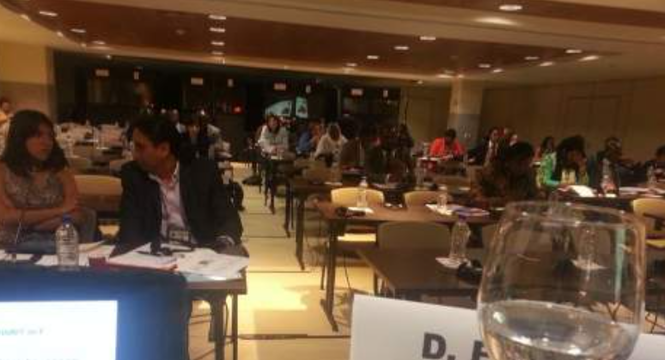
As late winter floods continued to impact the lives of thousands in western Ecuador, parliamentarians from around the world attending the 128th Assembly of the Inter-Parliamentary Union (IPU) in Quito, Ecuador greeted the launch of a new model law to speed relief in future mega-disasters.
Speakers at the March 24 event noted that few countries have clear laws in place to facilitate and oversee international relief. As a result, bureaucratic bottlenecks affecting relief personnel, goods and transport are common and coordination and quality-control are constant challenges.
“A crisis is the wrong time to create the rules needed for relief operations,” argued David Fisher, Coordinator of the International Federation of Red Cross and Red Crescent Societies (IFRC) Disaster Law Programme, “law-makers have a critical role to make their countries legally prepared.”
“Vital relief goods should not be trapped behind paper-work when lives are on the line,” agreed Ana Maria Rebaza, National Disaster Response Advisor for the United Nations Office for the Coordination of Humanitarian Affairs (OCHA), “but we also need to make sure that the affected state can oversee the quality and coordination of relief efforts.”
To help them do this, the IFRC, OCHA and the IPU developed a “Model Act on the Facilitation and Regulation of International Disaster Relief and Initial Recovery Assistance.” Drawing on internationally-accepted guidelines and benefiting from the advice of over 200 global humanitarian and legal experts, the Model Act is meant as a starting point for law-makers hoping to prevent problems in future relief operations. After a year of “piloting” with interested governments, the final version of the act was unveiled at this event.
Parliamentarians attending the event called it an “eye-opener” and emphasized the need for more effective standards for international relief, both at the domestic and international levels.
"Responding to and managing international disaster assistance is proving to be increasingly complex,” noted Saber Chowdhury, Member of the Parliament of Bangladesh, “this Model Act is an important starting point tool that legislators can make good use of in terms of developing their own laws and protocols."
More information about the Model Act is available here.